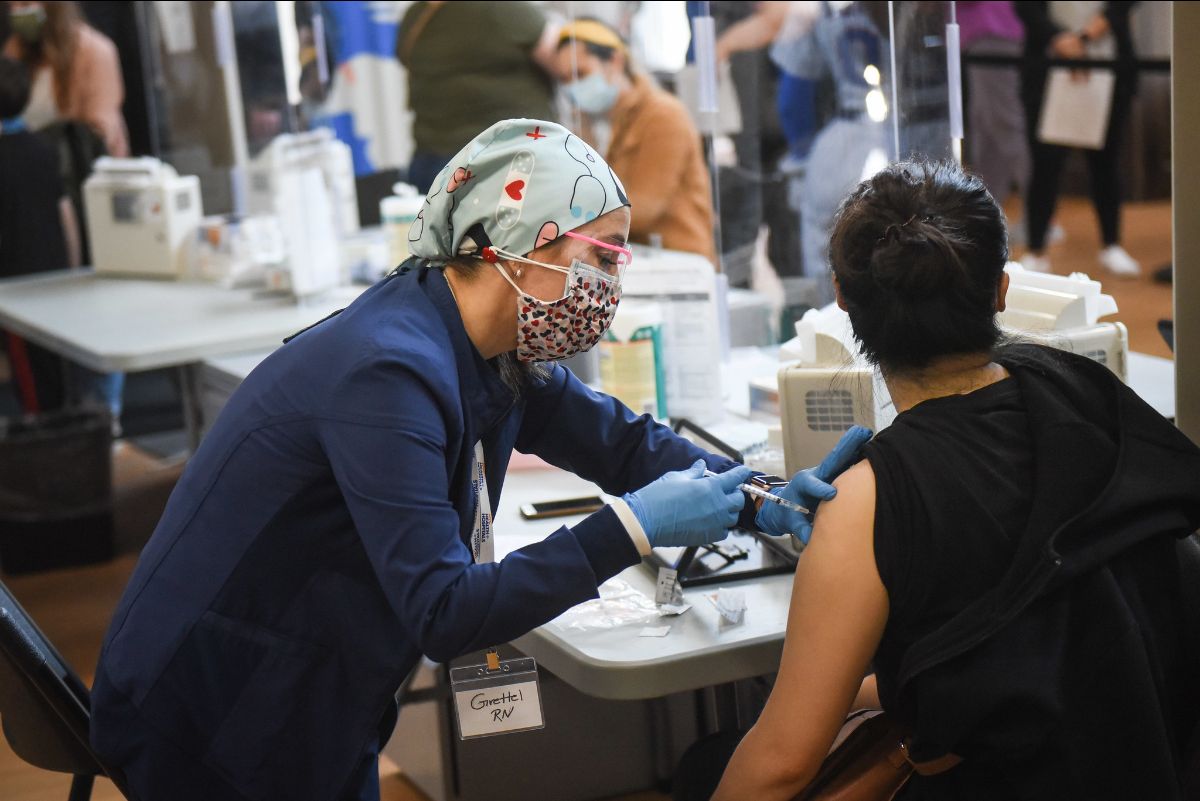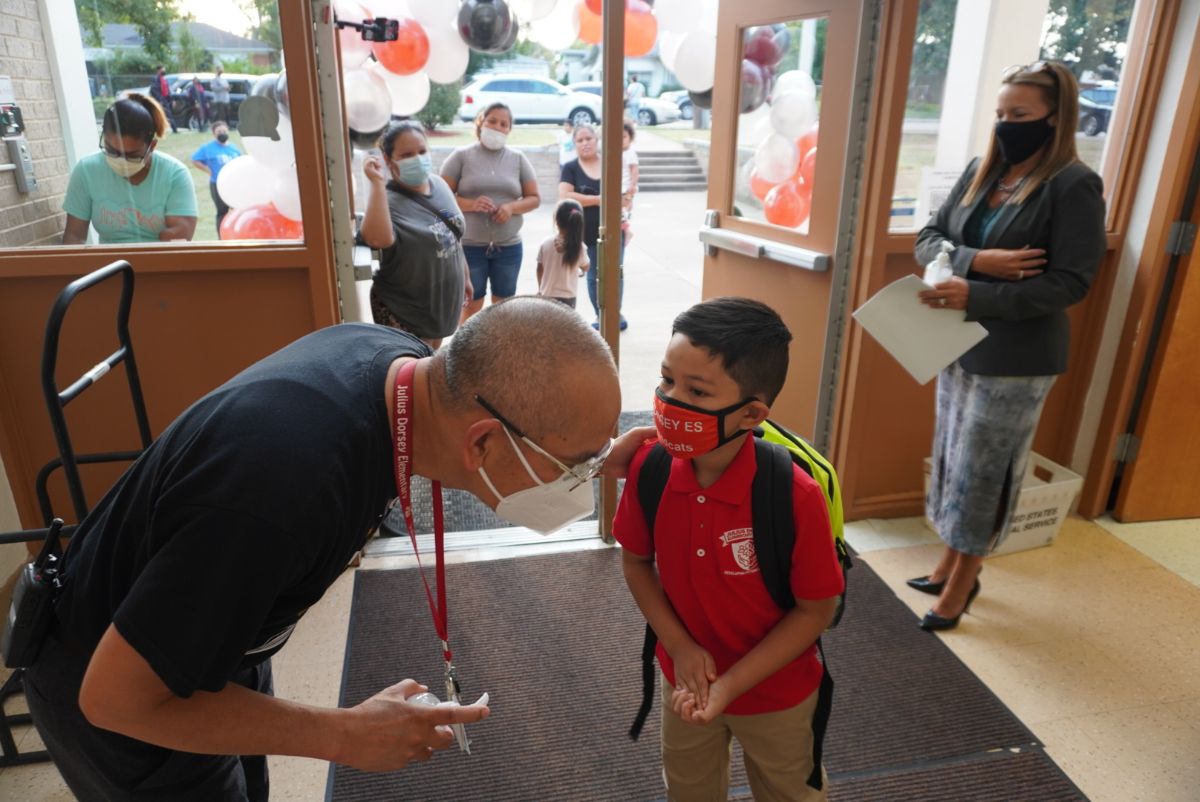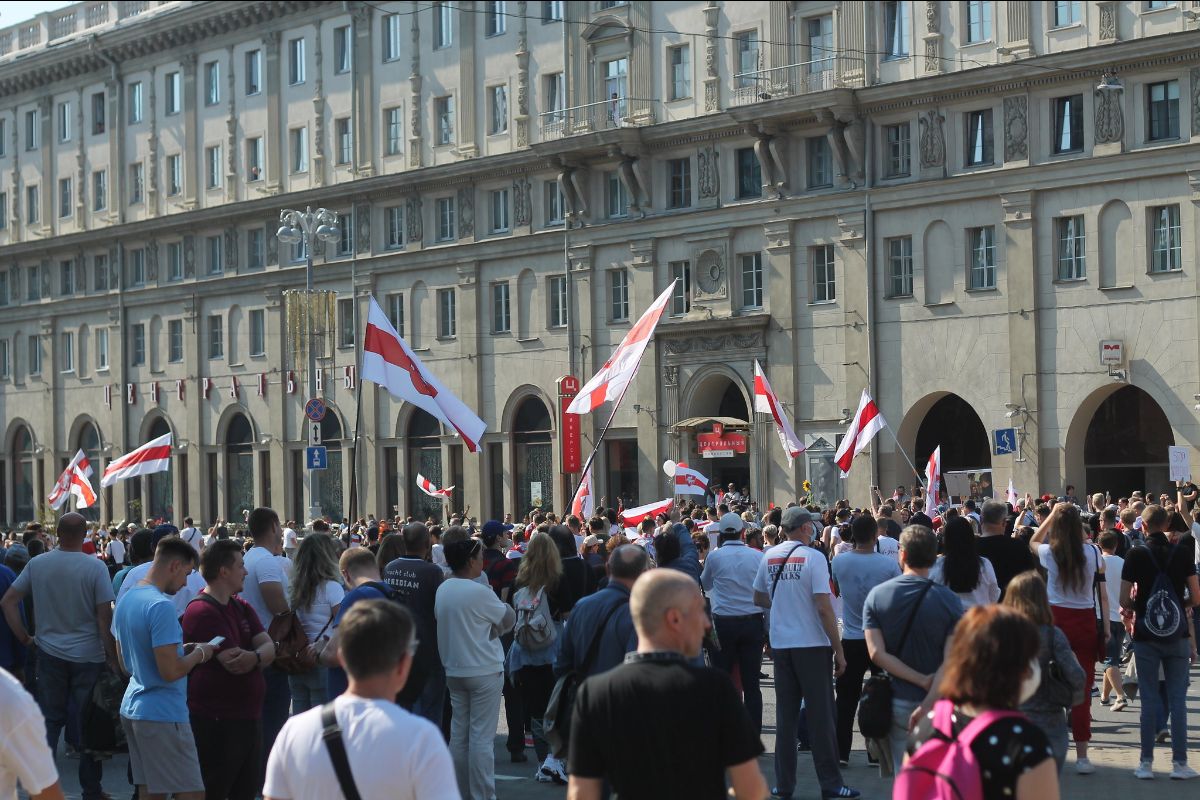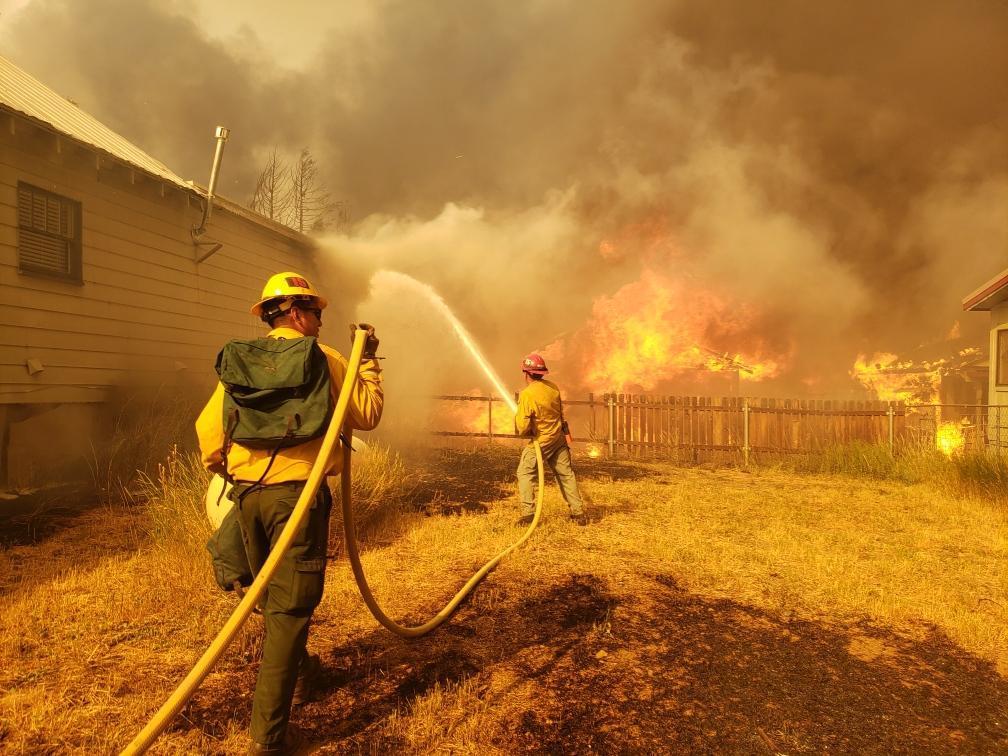Top photo: Firefighters worked to protect homes in Greenville, Calif., on Aug. 4 when extreme weather conditions resulted in aggressive fire behavior. (Photo: Lassen National Forest Service)
Welcome to Factal Forecast, a look at the week’s biggest stories and what they mean from the editors at Factal. We publish our forward-looking note each Thursday to help you get a jump-start on the week ahead. If this email was forwarded to you, and you like what you see, you can subscribe for free.
A look ahead:
Aug. 12/ Pacific Northwest heatwave: Six weeks after an unprecedented heat wave shattered records and left hundreds dead in British Columbia, Washington state and Oregon, people across the region are again facing high temperatures that started Wednesday and are expected to continue through the end of the week — though not quite to the level of June’s anomalous “heat dome.”
- What’s happened so far: Triple-digit temperatures are in the forecast by the end of the week for Portland, Ore., and Spokane, Wash., while Seattle is expected to see multiple days in the mid-to-upper 90s. With the heat also comes an increased fire risk, and Northern California officials are concerned over what multiple days of 100-plus degree temperatures may mean for the Dixie Fire, which became the largest wildfire in state history on Tuesday.
- The impact: With little overnight cooling expected before temperatures return to normal over the weekend, the latest heat wave remains a significant threat to vulnerable populations in an area of the United States known for its lack of home air conditioning. In places like Portland, preparations were underway by the start of the week to open cooling centers and deliver food and water to those in need.

Aug. 13/ Venezuela political talks expected: The Venezuelan government and the opposition have agreed to engage in talks expected to begin Friday in Mexico to solve the country’s political crisis.
- What’s happened so far: Mexico will host the negotiations between Nicolás Maduro’s government and the opposition led by Juan Guaidó, whom 20 countries recognized as Venezuela’s interim president in 2019. This is the third time a dialogue between the parties will take place. The previous attempts, in 2016 and 2019, failed despite international mediation. The talks are expected to begin Friday and the list of participants is still to be confirmed. Although participation from at least four opposition parties and some high government officials is expected, it remains unclear if Maduro and Guaidó will personally sit at the negotiating table.
- The impact: Some of the main issues discussed will likely be the release of political prisoners, the withdrawal of economic sanctions and the establishment of an electoral timeline. While the government is seeking to put an end to the sanctions imposed on top officials and state-owned industries, the opposition hopes to regain political participation. Although Maduro recently said the communication between both parties before the talks is “going well,” the hypothetical success of the negotiations is unlikely to have a meaningful impact on the lives of Venezuelans, as a way out of the economic crisis has not been included in the agenda.
Aug. 15/ India Independence Day: India will celebrate its 75th Independence Day on Sunday, amid an ongoing pandemic and farmers’ protests.
- What’s happened so far: India has dealt with an array of challenges in the past year, including record-breaking coronavirus cases and deaths. With more than 32 million coronavirus cases reported, India is second only to the United States in coronavirus infections.The death toll, meanwhile, is estimated to have surpassed four million. To compound the country’s domestic concerns, tens of thousands of farmers have held protests since September against a series of agricultural laws. Several hundred people are estimated to have died in the protests, according to local media.
- The impact: The ruling Bharatiya Janata Party is taking this anniversary as an opportunity to foster patriotic sentiment. A two-week long nationwide flag march is already underway and has caused huge traffic jams. Organizers of the farmers’ protest, surprisingly, said they will not be rallying in Delhi on Sunday, though they intend to participate in demonstrations at a local and district level.

Aug. 16/ New York City vaccine mandate: Restaurant patrons in New York City will need to show proof they’re vaccinated against coronavirus starting Monday, thanks to a new mandate from Mayor Bill de Blasio. The order, which is the first of its kind in the United States, also requires proof of at least one dose of a coronavirus vaccine when accessing other indoor public settings such as gyms and entertainment centers.
- What’s happened so far: Mayor de Blasio announced the new mandate on Aug. 3, calling it the “Key to NYC Pass.” People can prove they’re vaccinated by showing a vaccination card or by using either the city or state’s vaccine pass smartphone app. While other U.S. cities have yet to follow suit, several countries in Europe have already implemented a “vaccine passport.” In some places, such as France and Greece, these mandates were met with widespread protests.
- The impact: The mandate is part of a “new approach” the city is taking to assist in the fight against the Delta variant. De Blasio said the vaccine should be seen as “literally necessary to living a good and full and healthy life.” Still, some have raised concerns over the mandate. From privacy and efficacy concerns over apps and vaccination records to expected legal challenges, it will no doubt be a hot topic in the coming weeks. The mandate will be phased in with inspections and enforcement starting the week of Sept. 13.
Aug. 16/ Deadline for Poland to comply with EU ruling: The European Commission warned Poland must comply with two decisions made by the European Court of Justice by Monday or face financial sanctions.
- What’s happened so far: Tensions between Poland and the EU have been rising ever since the eastern European country embarked on a judicial remodel five years ago, passing several laws giving politicians sweeping powers over the judiciary which led to the EU to launch legal proceedings. Last month, Poland’s Supreme Court ruled the measures the EU court imposed on the country’s judicial system were against the Polish constitution, arguing domestic issues regarding the judiciary remain under the purview of Polish authorities. But a few days later, the EU ruled Poland’s disciplinary regime, which included provisions allowing the removal of judges’ immunity, were not compatible with EU law.
- The impact: Despite Poland’s recent announcement it would scrap the Supreme Court’s Disciplinary Chamber in a bid to avoid EU sanctions just days before the deadline, a spokesperson for the EU Commission said the deadline remained unchanged as officials continue to examine Poland’s decision. While Polish officials previously argued “legal solutions in force in Poland” were similar to those in other member states, an EU report found a deterioration in public and corporate opinion of the Polish justice system. Also last month, the European Commission launched legal cases against some regions in Poland over “LGBT-free” zones, further escalating the tensions between the union and Poland.
Aug. 16/ Mask mandate on first day of school in Dallas: On Monday, more than 150,000 students are returning to classes in Dallas, the second-biggest school district in Texas. All are being required to wear masks, in a showdown between district officials, who say they want to protect kids against coronavirus and Gov. Greg Abbott, who has banned facial-covering mandates across the state.
- What’s happened so far: Coronavirus cases and related hospitalizations are spiking across the country, even as vaccination rates increase, due to the widening spread of the highly infectious Delta variant. That has raised alarm among health officials about the risk being posed to students and staff in the fall in the state where only about half of the population has been fully vaccinated.
- The impact: The mask-wearing requirement imposed by local officials in Dallas received a boost on Tuesday, after a judge ordered a temporary suspension of Abbott’s order, pending a hearing on Aug. 24. Another judge issued a similar decision in favor of Bexar County, the home of San Antonio, where authorities vowed to reimpose mask-wearing in schools in accordance with CDC guidance. Other big-city school districts in the state are also likely to shun Abbott’s order, though without court-backing yet, including Houston and Austin.

(Photo: Dallas ISD / Facebook)
Aug. 17/ Nova Scotia election: Voters in Canada’s Nova Scotia will cast their ballots Tuesday in a tight race as Liberal candidates lose support in the province’s general election.
- What’s happened so far: Premier Iain Rankin, who assumed office as the province’s leader earlier this year, called the general election in mid-July, allowing for several weeks of campaigning. Healthcare and recovery from the coronavirus pandemic have become key issues in the campaign. Some 13 incumbents aren’t running this time around, and the number of seats in the province’s assembly has increased from 51 to 55, following a reinstatement of four ridings, the province’s districts.
- The impact: Political experts have said that next week’s election could hold surprises and that the situation is “fluid.” Polls have shown the Liberal Party with a lead, though it has narrowed and the party may be facing a bigger fight than it expected from resurgent opposition parties. This comes amid approval ratings that have dropped in recent months. Results may not be fully known until Wednesday as officials in the province can stop counting ballots at midnight, and officials believe a surge in early voting could push results into the next day.
Aug. 17/ GM union vote in Mexico: Workers at a General Motors assembly plant in Silao, Mexico, will vote again on Tuesday on a collective bargaining agreement following corruption allegations during a vote in April.
- What’s happened so far: A new trade agreement involving Canada, Mexico and the United States went into effect last year. Under that agreement, Mexico had to standardize its union votes. Before, it wouldn’t be uncommon for union leadership in Mexico to sign contracts without consulting union members. In April, the new rule was put to the test when workers in Silao were asked to vote on whether or not to keep the current union. Inspectors claim the union broke into the ballot boxes and replacing“no” votes. In wake of those allegations, the United States, Mexico, and GM agreed to a second vote with third-party observers.
- The impact: Critics said the old practice led to U.S. companies paying lower wages in Mexico for the same work they would otherwise get in Canada or the United States. If the workers vote to change unions, it could lead to higher wages for auto workers throughout Mexico and serious financial changes for car companies that employ Mexican workers.
Aug. 18/ EU crisis meeting: European home affairs ministers are expected to address a possible deportation halt of Afghan asylum seekers during an emergency meeting Wednesday. The gathering was initially scheduled to discuss a surge of illegal border crossings from Belarus to European Union member states Lithuania, Poland and Latvia.
- What’s happened so far: In recent weeks, Taliban fighters have made major advances against the Afghan government in light of the withdrawal of U.S.-led foreign forces, capturing major provincial capitals and displacing scores of Afghans. An Aug. 5 letter sent by six EU member states to the European Commission warned the bloc against halting deportations of rejected Afghan asylum seekers arriving in Europe, saying that stopping such forced returns is “likely to motivate” more Afghan citizens to leave the country for the EU. The letter came after Afghanistan urged European countries in early July to halt forced deportations until October due to increasing conflict.
- The impact: More than 30 NGOs have called on EU members to immediately stop forced deportations, citing the deteriorating security situation. Since 2015, around 570,000 Afghans requested asylum in the EU, including 44,000 in 2020 alone. A senior EU official said the bloc wants to avoid a massive flow of migration from Afghanistan — fearing a replay of the 2015 migration crisis when more than a million people from the Middle East stretched security and welfare systems across Europe.

What else matters:
New Belarus sanctions: The United States unveiled fresh sanctions on 23 people and 21 entities closely aligned with Belarus’ embattled strongman President Alexander Lukashenko this week. The measures, which were in response to the regime’s ongoing repression following last August’s disputed presidential election, were also joined by fresh British sanctions on Belarus’ vital potash and petroleum export industries. The measures come shortly after President Joe Biden’s meeting with Belarus’ opposition leader Sviatlana Tsikhanouskaya at the White House.
- Watch for: Despite the fresh round of sanctions, there is likely little hope that the measures, which include European Union sanctions, will significantly alter Lukashenko’s calculus. The sanctions will, however, provide an additional push for Belarus to pursue the longstanding Russian wish of creating a union state. Additionally, watch for further developments in the unfolding migrant crisis involving Belarus and its neighbors Poland, Latvia and Lithuania. Latvia declared a state of emergency amid a surge in migrant crossings from Belarus, while Poland accused Belarus of weaponizing immigration across its border, both of which also represent the EU’s external borders.
Greece wildfires: Greece is facing a “natural disaster of unprecedented proportions,” Prime Minister Kyriakos Mitsotakis said as 586 wildfires continue to burn across the country. Evacuations have been ordered in more than 60 villages or settlements. More than half of Greece’s second-largest island, Evia, has burned. Residents have fled by boat as entire villages have been destroyed. Fires are also burning in areas in the Peloponnese including Mani, Messinia and ancient Olympia, the site of the first Olympic Games. At least 20 countries have sent aid as the area continues to endure one of the worst heat waves in decades, accompanied by months of drought. Wildfires have also broken out in Turkey, Italy and Algeria.
- Watch for: Mitsotakis approved a supplemental budget of €500 million ($586 million) for people who have lost homes and property in the wildfires. The Greek government will also offer one-time payments of €6,000 ($7,032) to injured residents. Some criticism has emerged about the nation’s response to the fires, and Mitsotakis has apologized “for any weakness” on the part of the government. Civil Protection chief Nikos Hardalias, meanwhile, said authorities “truly did what was humanly possible.” In addition, criminal investigations have begun into the causes of some of the fires.
Extended outlook: What’s on our radar in the coming weeks
Aug. 12: Zambia general election; Pacific Northwest heatwave
Aug. 13: Premier League, La Liga and Bundesliga begin; Venezuela political talks expected to begin
Aug. 15: India national day
Aug. 16: Poland must comply with EU court ruling or face fines; New York City launches vaccination mandate for restaurants
Aug. 17: Nova Scotia, Canada, general election; Mexico, U.S. agree GM Silao union vote will be held
Aug. 18: EU domestic affairs crisis meeting
Aug. 21: NYC Homecoming concert
Sept. 1: Singapore to ban domestic elephant ivory trade
Sept. 5: Hong Kong legislative election
Sept. 10: First game of 2021 NFL season
Sept. 11: 20th anniversary of September 11 attacks
Sept. 13: Norway parliamentary election
Sept. 14: California gubernatorial recall election
Sept. 19: 73rd Primetime Emmy Awards; Russian legislative elections

